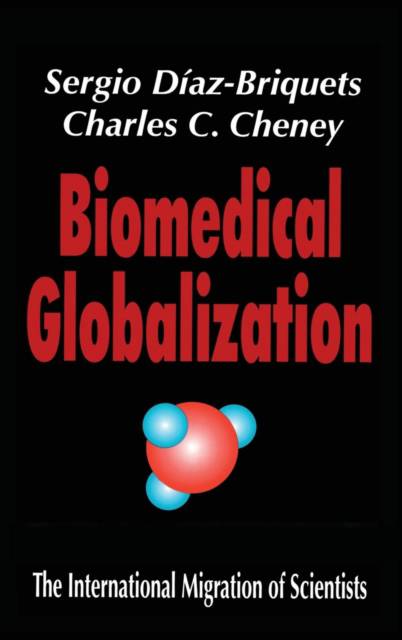
Je cadeautjes zeker op tijd in huis hebben voor de feestdagen? Kom langs in onze winkels en vind het perfecte geschenk!
- Afhalen na 1 uur in een winkel met voorraad
- Gratis thuislevering in België vanaf € 30
- Ruim aanbod met 7 miljoen producten
Je cadeautjes zeker op tijd in huis hebben voor de feestdagen? Kom langs in onze winkels en vind het perfecte geschenk!
- Afhalen na 1 uur in een winkel met voorraad
- Gratis thuislevering in België vanaf € 30
- Ruim aanbod met 7 miljoen producten
Zoeken
Biomedical Globalization
The International Migration of Scientists
Charles Cheney
Hardcover | Engels
€ 183,45
+ 366 punten
Uitvoering
Omschrijving
Despite much debate in recent years about the economic and professional impact of foreign engineers and computer professionals in the United States, comparatively little has been said about the growing number of foreign biomedical scientists employed by American firms and health institutions. The implications are widespread and merit serious analysis. In Biomedical Globalization, Sergio Diaz-Briquets and Charles C. Cheney shed light on this development through examination of the experience of foreign biomedical scientists at the National Institutes of Health (NIH) in Bethesda, Maryland.Diaz-Briquets and Cheney's analysis is based on results of ethnographic field observations and more than 200 interviews among diverse biomedical research constituencies in the United States and abroad. These views provide a penetrating glimpse into the complex web of interrelationships governing the international mobility of highly skilled personnel within a given scientific field. While the work of the NIH is unexceptionable in advancing biomedical knowledge and forging international research linkages, a far more complex and elusive picture emerges when the issue is placed within a broader labor market perspective. Under some circumstances the United States economy may suffer from the presence of foreign biomedical scientists in American laboratories. There is some fear that when these scientists return home they may take with them know-how developed here that could be used to strengthen the scientific prowess of overseas competitors.In conducting their research, the authors have identified several hitherto unrecognized functions that the NIH plays in channeling foreign biomedical scientists intothe American workforce. These functions are of great significance to immigration and labor policy and can be seen as instrumental to the satisfaction of numerous key public policy objectives. Biomedical Globalization will be of interest to policymakers, labor studies scholars, and scientific researchers.
Specificaties
Betrokkenen
- Auteur(s):
- Uitgeverij:
Inhoud
- Aantal bladzijden:
- 220
- Taal:
- Engels
Eigenschappen
- Productcode (EAN):
- 9780765801043
- Verschijningsdatum:
- 28/02/2002
- Uitvoering:
- Hardcover
- Formaat:
- Genaaid
- Afmetingen:
- 162 mm x 237 mm
- Gewicht:
- 458 g

Alleen bij Standaard Boekhandel
+ 366 punten op je klantenkaart van Standaard Boekhandel
Beoordelingen
We publiceren alleen reviews die voldoen aan de voorwaarden voor reviews. Bekijk onze voorwaarden voor reviews.









